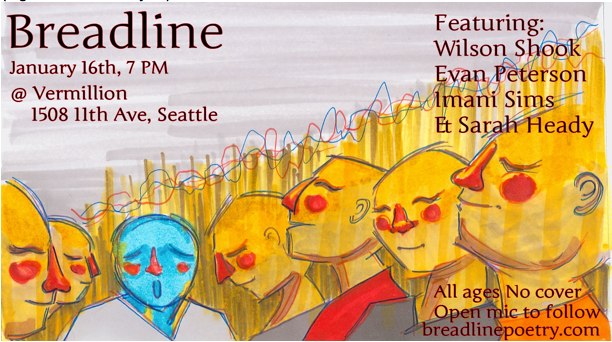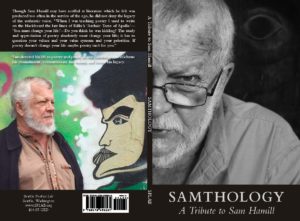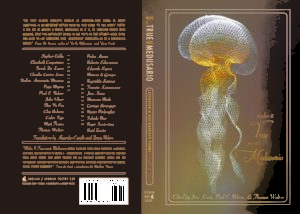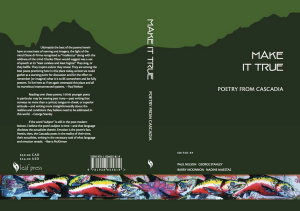From Alex Bleecker: hey you effing fabulous sparkle-monkeys!
are you as glad to be alive as we are? yes? no? well the good news is – it doesn’t matter – ’cause you are! so why not join us for the breadline 2013 kickoff this wednesday for a walloping sheboygan of a good time? (and i do mean wisconsin!) minor arcana poets evan peterson and imani sims will be spitting hard (bring a poncho), as will philly poet sarah heady. you’ll also be well charmed by the saxophonic sounds of wilson shook. (there may or may not be something special for you to look at, too!) guess where! guess what time! guess what happens after the features! who loves ya, baby?!? that’s right – these guys… al, jer, gre

Breadline 1.16.13

About Splabman
Poet & interviewer Paul E Nelson founded SPLAB (Seattle Poetics LAB) & the Cascadia Poetry Festival. Since 1993, SPLAB has produced hundreds of poetry events & 600 hours of interview programming with legendary poets & whole systems activists including Allen Ginsberg, Michael McClure, Joanne Kyger, Robin Blaser, Diane di Prima, Daphne Marlatt, Nate Mackey, George Bowering, Barry McKinnon, José Kozer, Brenda Hillman & many others. Paul’s books include American Prophets (interviews 1994-2012) (2018) American Sentences (2015) A Time Before Slaughter (2009) and Organic in Cascadia: A Sequence of Energies (2013). Co-Editor of Make It True: Poetry From Cascadia (2015), 56 Days of August: Poetry Postcards (2017) and Samthology: A Tribute to Sam Hamill (2019) Make it True meets Medusario (2019), he’s presented poetry/poetics in London, Brussels, Nanaimo, Qinghai & Beijing, China, has had work translated into Spanish, Chinese & Portuguese & writes an American Sentence every day. Awarded a residency at The Lake, from the Morris Graves Foundation in Loleta, CA, he’s published work in Golden Handcuffs Review, Zen Monster, Hambone, and elsewhere. Winner of the 2014 Robin Blaser Award from The Capilano Review, he is engaged in a 20 year bioregional cultural investigation of Cascadia and lives in Rainier Beach, in the Cascadia bioregion’s Cedar River watershed.






